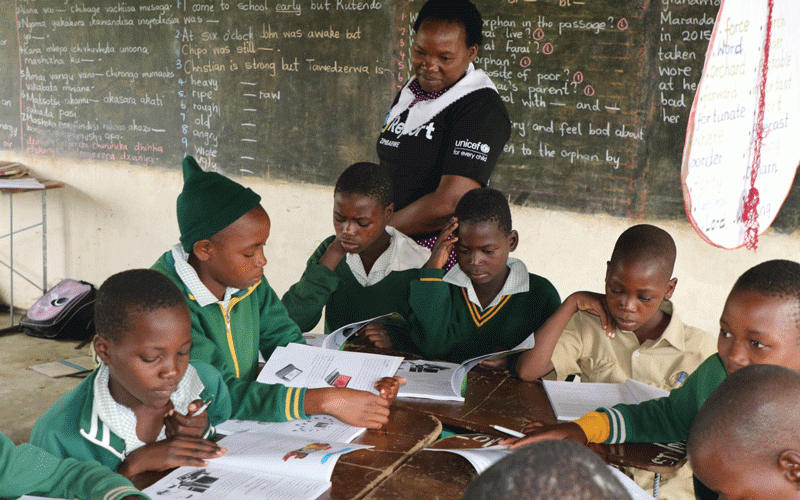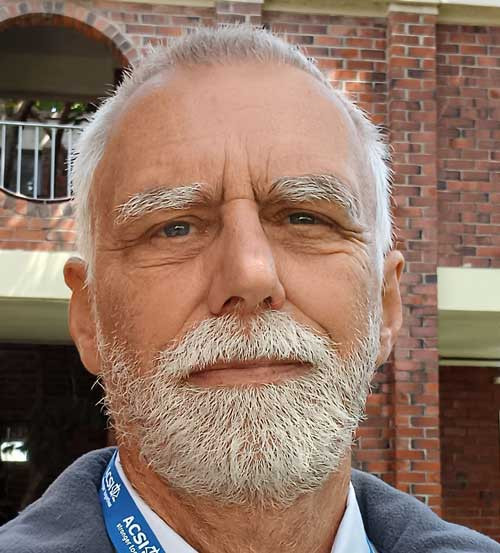
We all know that the favourite question of a four-year old is “Why?”; by the time the child has reached teenage years the question is still in effect the same but has now become “What for?”
They love to ask their teacher “What do we have to learn this for? I will never do Algebra again in my life!” or words to that effect. The parent asks him to do something and she responds, “What for?”
The school requires the children to play sport and be involved in cultural activities and the child retorts “What for?”
The senior staff member tells him to have his hair cut and he asks, “What for?”
It has probably not escaped the attention of those who have been in that situation that the response to such questioning might well be along the lines of “I’ll give you ‘what for’ if you say that once more!”
Such a response has the meaning of punishing, rebuking, berating, reprimanding, scolding the child for her audacity in asking such a question.
She will soon find out “what for”, though it will most likely not be in words! In the same way that a parent tells the four-year old child “Because I say so” in response to the question “Why?”, so the answer to the teenager is intended to have the same effect, namely of shutting the child up. What for? I will give you what for.
In many ways the examples of the parent and the teacher in these last two examples reflect what for years has been understood to be the purpose of education.
- Zim to host world boxing indabas
- News in depth: Vaccine hesitancy negatively affects Covid-19 jab uptake in Zimbabwe
- Building narratives: Online opportunities hub transforms youth’s lives
- A thing of reality
Keep Reading
For many, it has come across as the teacher or parent telling the child what he should know and punishing him if he dares to question him.
Yet that is not what education is for. So, what then is education for?
Well, many will say that education is preparing pupils for life, both in and out of the classroom, developing them for what they will need in the world beyond. That sounds good and proper.
It is a similar thought that Bill Gates famously shared in his well-known piece entitled ‘Rules for Teenagers’ (which he had taken from Charles Sykes’s rules written in his book ‘Dumbing Down America’) whereby he says that real life is not like school (or soap operas on television).
The real world requires people to work hard; it does not treat you softly-softly; it does not have long holidays; there are winners and losers, whether we like it or not.
So, we are to understand, schools are to prepare youngsters for such a world. They do not live in the real world.
There is much truth in that but therein lies also a problem. If education is preparing pupils for life, what is it that they have now, if it is not life?
Do they not have life now? Are they not living in the real world now – if not, what world are they living in?
Are we saying they somehow are excluded from reality?
Do they not need now those things for which we are developing them?
Of course, we might well then ask if we are preparing them for the real world, or the world beyond, by helping them to learn, and we claim that all life is about learning, what then are we preparing ourselves for as adults in this supposed ‘real world’? Are we as adults in truth in the ‘real world’?
Surely school is the real world; our children are living life in the real world. They do not graduate into the real world, unless we all agree that in our adult life we are also preparing ourselves for what we will need in the ‘real’ world beyond.
In that sense, everything is a preparation for what may well follow in our life but it is still life as we know it. It is still real; we are not in a fake world.
School is the real world as it is all about relationships, dealing with real people with real issues with real emotions.
We are not preparing them for such in the future; we are helping them live life now, in those relationships.
School is the real world as we experience many different emotions and experiences and have to deal with them.
School is the real world as it is about learning; that is what life is about.
School is allowing them to live a broad, balanced life, not limited to academic studies.
If we say we are preparing our children for life, we are depriving them of life itself.
It is no wonder children question their purpose in life so much when we say they are not in the real world yet.
Yes, we are protecting them (from things that they may not have the maturity to handle) but we must not say we are preparing them for life.
They must live life now in all its wholesomeness, beauty, diversity.
We must not give them ‘what for’; they are already well and truly in it.
We should be the ones who are given ‘what for’ if we say we are preparing them for life. They must have life now.
- Tim Middleton is the executive director of the Association of Trust Schools [ATS]. The views expressed in this article, however, are solely those of the author in his private capacity and do not necessarily represent the views of the ATS.
- email: ceo@atschisz.co.zw
- website: www.atschisz










